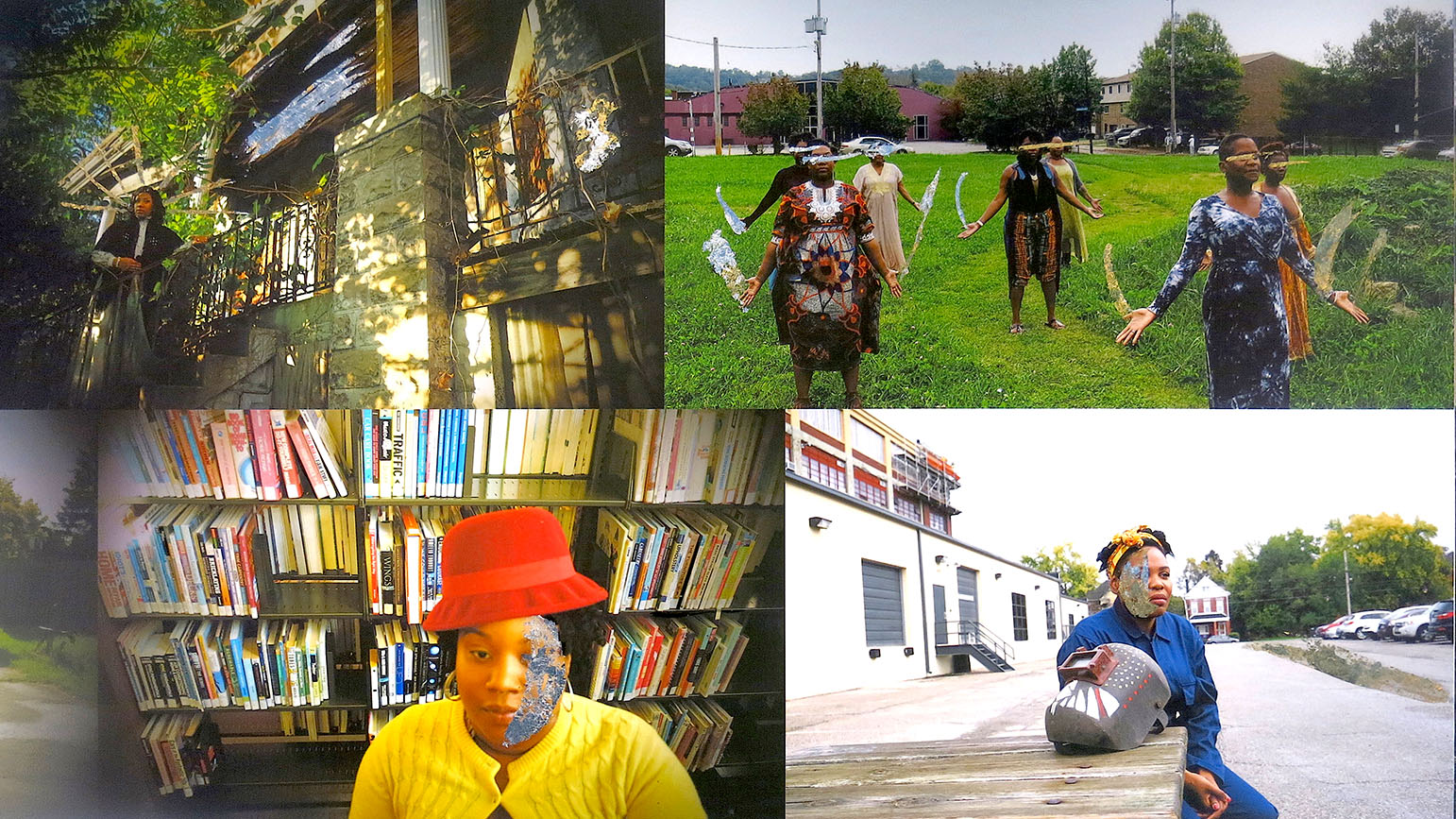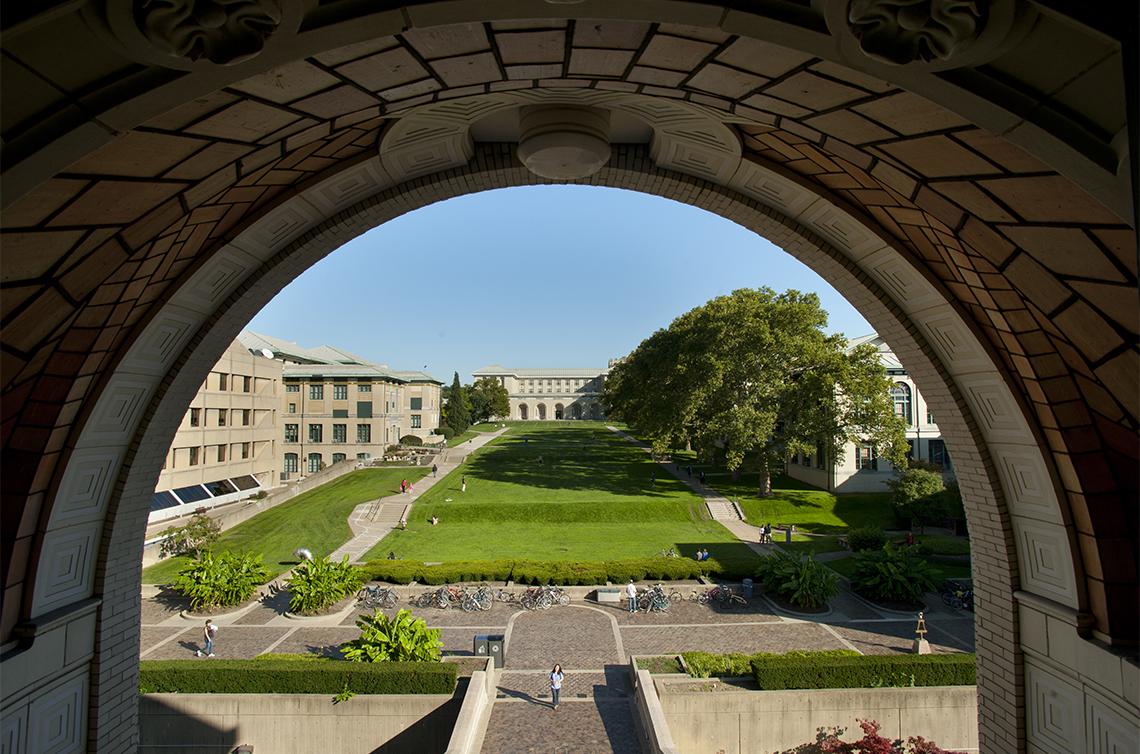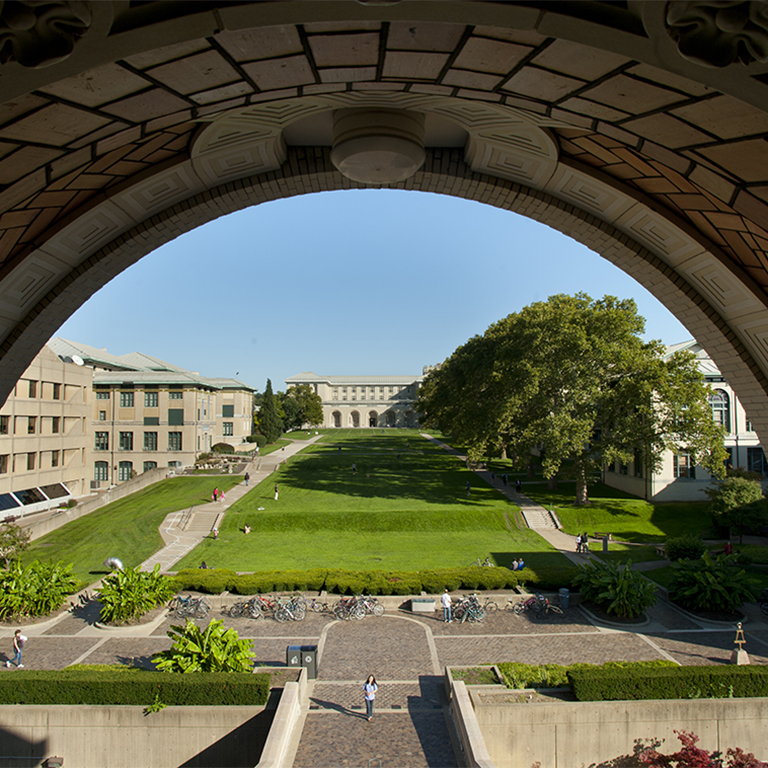
Professor Alisha Wormsley’s work is part of “A Beautiful Struggle: Black Feminist Futurism” on view at the Urban Institute for Contemporary Arts in Grand Rapids, MI, February 21 through June 14.
“A Beautiful Struggle: Black Feminist Futurism” is an interdisciplinary contemporary art exhibition that explores the integration of Black feminist and Afrofuturist ideas.
Afrofuturism is a creative and cultural genre that examines perspectives of the African diaspora based in a communal reimagining of the past—as well as envisioned futures—while considering themes of identity, escapism, magical realism, and technology. Yet, Black feminism specifically focuses on the perspectives of those who are both Black and female. The relevancy of exploring visual representations of Afrofuturism from a Black feminist perspective rests in the understanding of the necessity to lay aside the historically exclusive nature of both Black nationalism and feminism; instead, promoting the intersectionality of Black womanhood.
Rather than focusing on an imagined existence as a form of escapism from oppression, marginalization, and invisibility, this exhibition dares to expound upon unique characteristics of Black womanhood and ways in which these characteristics can be emphasized. By highlighting Black women’s experiences, without blatant representations of oppression, Black women’s self-defined identities are centered, rather than explored in a responsive way.
Afrofuturism also allows for the constant dialogue of past, present, and future, and the dynamic nature of constantly changing creations. Therefore, this exhibition offers examinations of Black feminist empowerment without constraints of particular time periods. All aspects of time are considered simultaneously, reimagined through Black feminist lenses, and used as tools of empowerment.
Through this exhibition, artists negotiate re-imagined pasts, contemporary realities, and envisioned futures by corresponding to the necessity of elevating voices of the African diaspora community, with particular focus solely on the voices which have been most suppressed, those of Black women.




